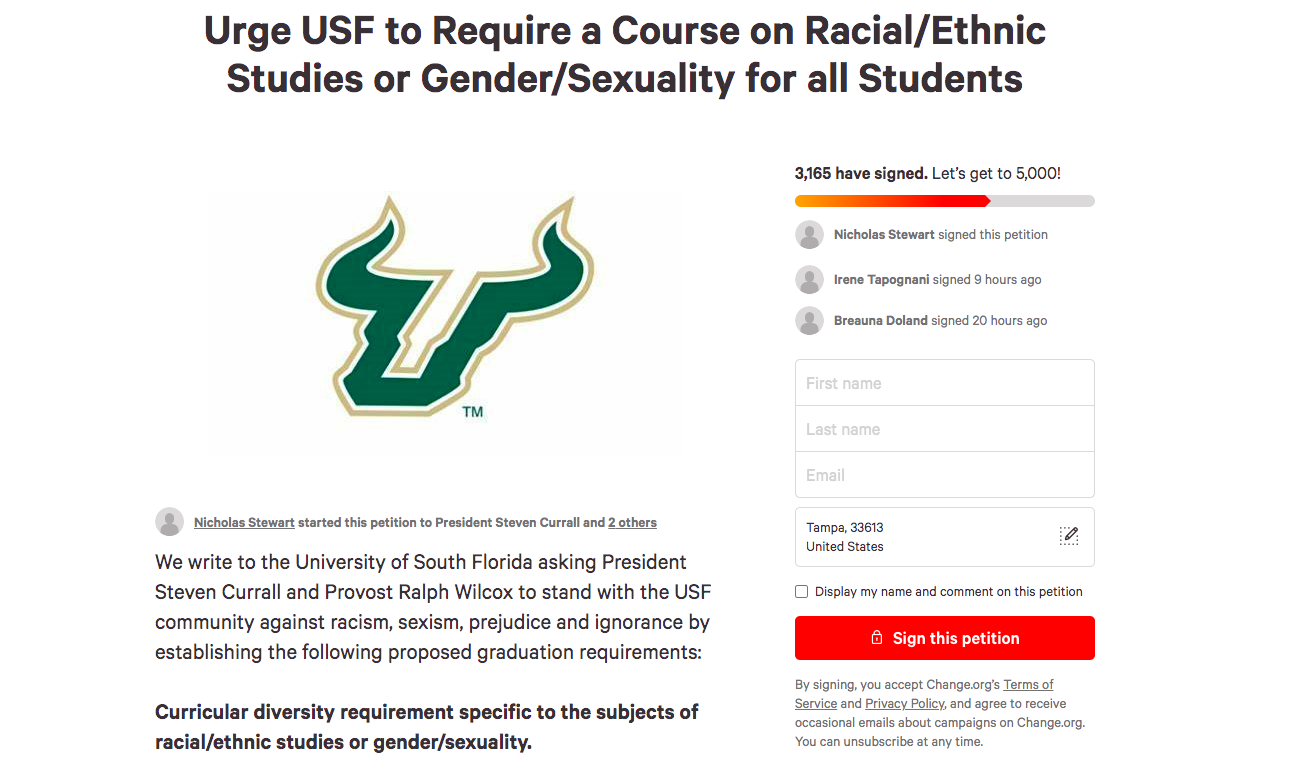Petition highlights need for required social justice courses at USF

The current Black Lives Matter protests have brought many injustices to the American public’s attention. Systemic racism, racism that is intertwined into societal institutions, has been highlighted as a major factor in the way people think, live, make money and see others.
To help combat the issue of systemic racism, senior Nicholas Stewart and alumna Valentina Moreno have created a petition on Change.org pushing administration to require a class in either racial/ethnic or gender/sexuality studies.
New general education courses that teach comprehensive sexual education and racial studies could help bring awareness to racism in America and around the world. Education is the first step to unlearning racial biases.
Stewart wrote in the description of the petition that he and other USF students expect the university and its faculty to express the love of diversity the school is often touted for by taking the initiative to decrease racism in the community.
These classes will increase society’s understanding of race, sexuality, gender and diversity. The petition’s description explains that racial/ethnic studies courses “allow for students to engage in self-reflection about what interests them and what subject matters they may lack an understanding in.”
The petition was created June 5, and as of June 17, it had received over 3,000 electronic signatures.
Christine E. Sleeter, a professor at California State University, released a research review in 2011 titled “Academic and Social Value of Ethic Studies.”
Describing the advantages of ethnic studies, Sleeter said that ethnic studies courses supply a curriculum that most history courses lack. She explains that, in America, history courses are taught with a Euro-American perspective, giving a warped interpretation of how many important events took place.
By providing a course on the history of the African American community, for example, students will receive a better understanding of slavery, segregation and many other experiences that are significant to sympathizing with the African American community.
In an interview with The Oracle, Laurie Lahey, a professor and undergraduate director at the USF School of Interdisciplinary Global Studies (SIGS), said racial and ethnic-based courses could significantly impact the student body.
Lahey mentions that the curriculum students learn in these potentially required courses could help them navigate their future work life, no matter their profession. She believes, along with the rest of SIGS, that these classes could prevent our country from being further overburdened with racism.
Edward Kissi, an associate professor at SIGS, added that these courses will give credit to the marginalized groups of America that helped build this country, because they will “allow students to broaden their knowledge of human experience beyond European history and Western civilization.”
Ethnic studies classes have proven to also have academic benefits. The San Francisco United School District created an option for students to take an ethnic studies course in 2015, which focused on nationality, ethnicity and minority struggles.
The district found that students who took this course, who were also at risk of dropping out, improved their grade point average by about 1.4 points and increased their attendance by 21 percent.
The process of ending systemic racism starts with education. By noticing and getting rid of microaggressions and racism within yourself, you can begin to change the way people of color are treated in America and globally.







